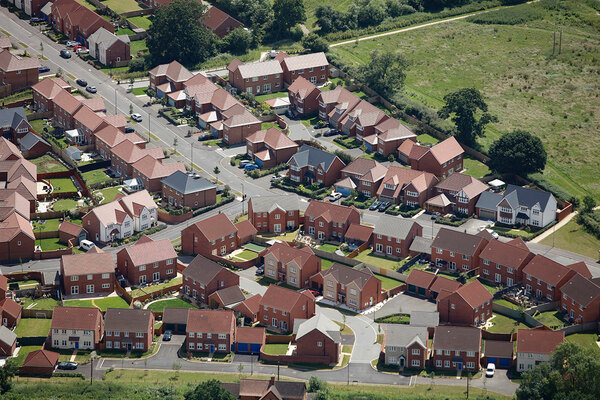You are viewing 1 of your 1 free articles
Let’s strengthen the safety net now
Many residents referred to Metropolitan Thames Valley Housing (MTVH) for support are currently struggling to afford food. Government must act urgently to strengthen the safety net for them, writes Geeta Nanda
The economic shock of the coronavirus pandemic has seen unprecedented government action to help keep millions of people’s heads above water.
From the furlough scheme and eviction bans to mortgage payment holidays and food parcels, these short-term measures have been essential in supporting people – and it is to the government’s credit that it acted swiftly to introduce them.
However, what this crisis has put into stark relief is just how precarious many people’s situations already were before the pandemic. Worryingly, it is very likely that the times ahead are going to be tougher for the very same people who were struggling to get by beforehand.
As the Resolution Foundation has found, 30% of people on the lowest incomes have been affected by the damage caused to the labour market due to the pandemic, compared with only 10% of those in the top fifth of earners.
So, it is the least well-off, many of whom will be social housing residents or on social housing waiting lists, who are going to be hardest hit by the economic consequences of COVID-19.
At MTVH, we have been providing targeted support for residents affected by coronavirus through our dedicated support hub. Building on the information obtained via the more than 5,500 proactive calls we have made to people most likely to need extra support, we have also created an internal referral system for colleagues to fast-track people to get the support they need.
Shockingly, the data we are seeing shows that obtaining food, including in many cases the ability to afford food, is the number one issue facing our residents who are referred for support.
For me, what this tells us is it that, alongside the need to build many more new affordable homes, which can help to transform people’s lives and financial situations, we need to look for ways to strengthen the safety net when people are struggling, even when they have an affordable place to call home.
Many housing associations have well-established crisis funds that help people in dire circumstances with emergency payments.
At MTVH, we made the decision at the start of the pandemic to more than double the funding available via our Tenant Welfare Fund, meaning this year we will have £550,000 available to support customers who are suffering financial hardship, alongside our wide range of advice and support services.
However, whereas support funds like ours used to be an additional route at a point of crisis, what we are seeing in many of the areas in which we operate is traditional local welfare assistance schemes operated by local councils that provide emergency support being simply overwhelmed.
A new study by The Children’s Society has found that due to the pressure on councils’ budgets, spending on such schemes has fallen by 86% (£250m) since 2010, with the number of people receiving crisis support in England falling by 75% since 2013.
Relying on foodbanks and welfare funds provided by housing associations to fill the gap this has created simply is not sustainable.
“The data we are seeing shows that obtaining food, including in many cases the ability to afford food, is the number one issue facing our residents who are referred for support”
That is why The Children’s Society, alongside a coalition of charities, are calling for an immediate £250m increase in funding to support councils to deliver local welfare assistance, helping them to better meet the “rising tide of need”.
While the government’s recent injection of £63m for such support is to be welcomed, as the Joseph Rowntree Foundation has made clear, there is much more that needs to be done to strengthen the safety net. It’s clear to me that housing associations need to be throwing our support behind these calls for much-needed further support.
We also need to be clear about other measures that are needed to address the challenges ahead, such as removing the five-week wait for Universal Credit, ensuring access to free school meals during school holidays, and preparing now for the inevitable post-furlough spike in unemployment.
The government has shown flexibility and boldness in much of its response to this crisis.
What we need now is to work together with government to not only address one of the causes of extreme poverty by building more new affordable homes, but also to strengthen the safety net for when people in crisis need it most.
Geeta Nanda, chief executive, Metropolitan Thames Valley Housing













